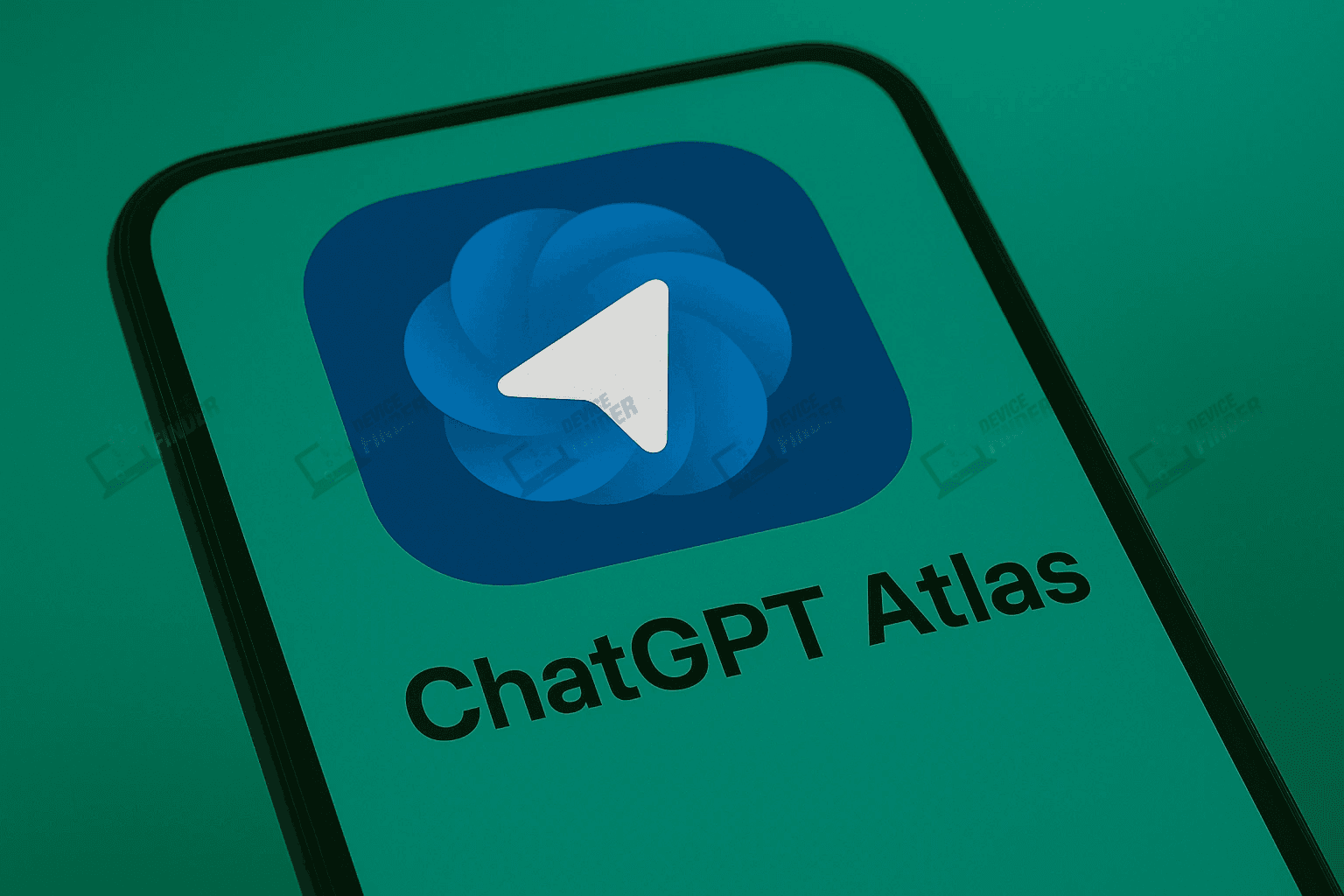
Is ChatGPT Atlas Browser the Google Killer?
Not quite. The newly launched ChatGPT Atlas Browser is a bold attempt to compete with Google Chrome and traditional search engines. Yet, it still has major limitations and is far from being the so-called “Google killer.”
So, what’s the real story? What exactly is a browser? What features does it have? Why are people calling it a “Google killer”? How can it help us, and in what ways could it potentially cause harm? In this article, you’ll find clear answers to all these questions, complete with examples.
What is ChatGPT Atlas Browser
The ChatGPT Atlas Browser is a new AI tool for faster, smarter web browsing. Many users try ChatGPT Atlas Web Browse for quick answers and helpful suggestions. ChatGPT Atlas brings unique features that make browsing easier than Chrome or other browsers.
Some compare it with Comet Browser, but Atlas Browser still has some speed and compatibility limits. It is not yet the “Google killer,” but ChatGPT Atlas is exciting tech enthusiasts everywhere. People are curious to explore the ChatGPT Atlas for smarter, AI-powered web experiences.
Top Features of ChatGPT Atlas
|
Feature |
ChatGPT Atlas Browser |
|
Type |
AI-assisted web browser |
|
Key Functions |
Summaries, comparisons, task automation, security alerts |
|
Google Killer? |
No, enhances browsing but doesn’t replace Google |
|
Security |
Phishing protection, RCE safeguards, red-teaming |
|
Users |
Researchers, students, professionals |
|
Availability |
Desktop & mobile (e.g., Samsung Galaxy S23) |
|
Pricing |
Free & paid tiers |
Google's Killer Concept
Some people call Atlas Browser a “Google Killer” because it provides instant answers. Unlike Google, it summarizes results in clear, natural language for easy understanding. Its AI feature remembers conversation context, allowing personalized answers to follow-up questions.
For example, users can ask about technology or medicine, getting coherent responses. It can generate comparisons, summarize reviews, and recommend the best options efficiently. Shoppers can check product features and prices without visiting multiple websites manually. These features sometimes reduce reliance on traditional search engines entirely. However, Google still dominates indexing and large-scale web searches globally.
Remote Code Execution and Safety
Remote code execution (RCE) risks exist when AI interacts with live systems. OpenAI implements safety measures to prevent harmful system actions online. Dual-use technology enables testing and learning without exposing live systems to harm.
Strict browser security ensures that malicious scripts cannot execute without warnings. Users must remain careful when performing system actions suggested by AI. Atlas Browser provides guidance and alerts before executing potentially risky commands. Testing in safe environments reduces errors from remote code execution attempts. Responsible use ensures system stability while exploring complex technical tasks safely.
Risks and Precautions
Even with safeguards, dual-use technology can be misused if handled improperly. Remote code execution errors can damage systems or cause accidental data leaks. Phishing protection is helpful, but humans must verify critical links manually. Cybersecurity vulnerabilities may still exist in poorly maintained websites or apps.
Browser security depends on OpenAI’s updates, but users should stay vigilant. Data breaches may happen if sensitive information is shared carelessly. Account takeover risks require strong passwords and multifactor authentication. Security testing should always occur in controlled environments to prevent harm.
Practical Examples
A software engineer uses Atlas Browser to find the latest API documentation. It summarizes technical content, speeding up development and reducing research time. A cybersecurity analyst detects vulnerabilities in web apps using AI tools. Red-teaming exercises simulate phishing attacks safely for internal employee training.
A company monitors competitor websites for product changes or pricing updates quickly. Students gather references for essays without manually checking multiple sources. Shoppers compare laptops and phones to find the best deals within seconds. Travelers check hotel availability, local rules, and prices with AI browsing assistance.
ChatGPT Atlas Browser in Bangladesh
The ChatGPT Atlas Browser is gradually gaining attention in Bangladesh as internet users and tech enthusiasts explore AI-assisted browsing. With rising concerns about cybersecurity vulnerabilities, data breaches, and phishing attacks, Atlas’s phishing protection and AI-driven security testing features are particularly appealing to businesses and professionals. Users accessing Atlas on devices like the Samsung Galaxy S23 find its security features especially useful.
Bangladesh’s growing tech sector, including IT outsourcing and software development, is increasingly adopting AI tools for productivity and security. The ability of Atlas to autonomously perform system actions, assist with account takeover prevention, and provide intelligent workflow solutions makes it a potentially valuable tool for both enterprises and individual users. Its emphasis on browser security aligns well with local efforts to strengthen digital safety and reduce online fraud.
Conclusion
ChatGPT Atlas Browser combines AI with live browsing, making research, shopping, travel, and cybersecurity tasks faster and smarter. With ChatGPT Atlas Web Browse and Comet Browser features, users can monitor systems, detect vulnerabilities, and prevent account takeovers securely. Atlas Browser ensures privacy, reduces risks from cyber threats, and simplifies information gathering and analysis for both personal and professional needs. It works seamlessly on devices like Samsung smartphones, making your mobile experience smarter and safer.
With responsible use, ChatGPT Atlas empowers users to explore, learn, and innovate online safely. It’s more than a tool; it’s a companion that helps you navigate the digital world with confidence, security, and peace of mind.
FAQs
1. What is ChatGPT Atlas Browser?
It’s a web browser by OpenAI that integrates AI for real-time summaries, comparisons, task automation, and enhanced browser security.
2. How is Atlas different from traditional browsers?
Atlas actively assists users with AI features like article summarization, task automation, system actions, and personalized recommendations, while also implementing phishing protection and safeguards against account takeover.
3. Is it free?
Atlas offers free and paid tiers. Paid users gain access to “agent mode,” security testing, and memory features.
4. Can Atlas replace Google Search?
Not entirely. Atlas is an AI assistant layered on browsing, while Google remains the primary search engine. Atlas enhances web navigation with phishing attack prevention and productivity tools.
5. How does Atlas handle privacy and security?
OpenAI ensures browser security, mitigates cybersecurity vulnerabilities, and prevents data breaches. User data is not used for AI training without consent.
6. Are there risks with Atlas?
Some risks include AI inaccuracies and potential misuse of dual-use technology, remote code execution, or system actions. OpenAI mitigates these with red-teaming, security testing, and proactive safeguards.
7. Who is Atlas best suited for?
Researchers, students, and professionals who want an AI-assisted, secure browsing experience with productivity features.









